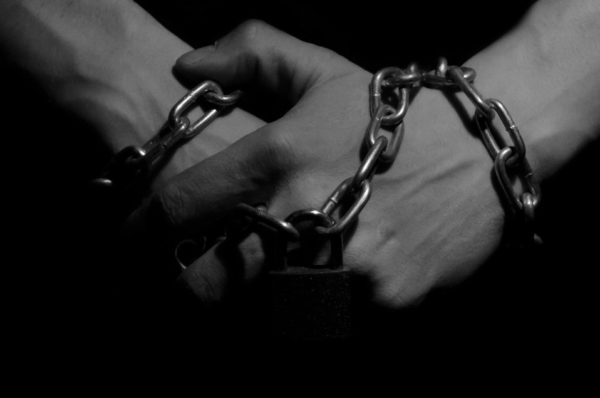The government has violated additional portions of the agreements: hundreds of arrests have occurred prior to the end of the registration period in places such as Damascus, Hama, and, more recently, in Deraa and the Idlib countryside
January 12, 2019

As the Syrian government continues to promote its narrative that the conflict is winding down, truces that the government refers to as “reconciliation agreements” have become an increasingly common method to reassert control over opposition-held areas. Such agreements supposedly provide a method for peaceful reintegration of communities into government control. However, an ongoing campaign of targeting and arrests of individuals in former opposition-held areas, despite the assurances offered in reconciliation agreements, is promoting instability and distrust among Syrians. SJAC is calling attention to these ongoing arrests and urges the new UN Special Envoy to prioritize this issue in negotiations under UN Security Council Resolution 2254.
So-called reconciliation agreements have been negotiated between government forces and local leaders since August 2016, when the first of such agreements came into effect in Daraya. These agreements have since been made in many areas, including in Eastern Ghouta and Deraa. The locally-negotiated agreements leave residents with the choice of being relocated to opposition-held Idlib or remaining and participating in the government-led reconciliation process.
Regardless of location, reconciliation agreements require all military-aged males who opt to stay in territories retaken by the government to register themselves at a government reconciliation center within a certain period of time, typically around six months. This process is regarded by some as an amnesty process, as the government implies that participation in the process is sufficient to protect individuals from arrest resulting from previous anti-government activities. However, the documents that individuals are required to sign as part of the process do not meet the standards of a fair amnesty agreement. First and foremost, the documents do not explicitly explain the crimes and circumstances for which a signatory will not be prosecuted or include any other provisions that would be binding on the government. Rather, a significant portion of the document requires participants to sign away rights that are protected under international law, such as freedom of speech and the right to peaceful assembly. The documents include agreements to, amongst other things, refrain from publishing or sharing content that insults the government, refrain from protesting “outside the confines of the law,” and to provide information on their relatives, friends, and neighbors. (SJAC’s full translation of the document can be found here). The men are also required to perform their mandatory military service if they have not already done so. These agreements are purportedly designed to facilitate reintegration of opposing forces and, more broadly, to expedite the process of rapprochement. However, SJAC and other organizations have documented widespread campaigns by the government to target and arrest males who should, in theory, be protected by these agreements.
First, the process laid out in reconciliation agreements has not been followed by the government branches tasked with implementing the process. In Deraa, some individuals who arrived to sign the required paperwork were told that they instead had to visit multiple other security branches – often branches that are known for torture and disappearances – likely in an attempt to intimidate them into refraining from completing the reconciliation process. Moreover, the government has arrested individuals upon their appearance for registration; SJAC documented cases of individuals being held for six to eight months while their paperwork was “processing.”
The government has violated additional portions of the agreements: hundreds of arrests have occurred prior to the end of the registration period in places such as Damascus, Hama, and, more recently, in Deraa and the Idlib countryside. These arrest campaigns have targeted both individuals who remained in the area following a reconciliation agreement but also those who had previously left the area but opted to return from Idlib following the agreements, meaning that efforts by Syria and Russia to encourage IDPs and refugees to return to their homes do not come with assurances of safety or mercy. SJAC has also documented a number of cases of individuals who were not just arrested, but who were killed in detention. One case involved the arrest and death of a man who returned to Eastern Ghouta from Idlib within the amnesty period. A second case involved the arrest of a former armed group leader in Deraa at a checkpoint; after being held for three to five hours, his body was released.
The government has also utilized other charges to target those who have complied with the reconciliation agreements. As the reconciliation process does not provide a general amnesty for all alleged crimes, the government has utilized (often falsified) charges of smuggling, theft, or encroachment on public property, as well as more serious charges such as the targeting of civilians, to detain those who would otherwise be protected by their participation in a reconciliation agreement. Through this practice, the government is able to detain individuals regardless of their status within the reconciliation process.
SJAC remains concerned over ongoing human rights violations in purportedly peaceful and secure areas retaken by the government. For these agreements to be upheld as a true solution for the reintegration of formerly rebel-held communities, the language of the agreements would require significant alterations to avoid the violation of basic rights. Additionally, the Syrian government would need to allow heavy monitoring to ensure fair enforcement. SJAC urges the international community not to overlook abuses in areas retaken by the government and to instead demand a halt to the arrest campaigns as well as significant changes to the reconciliation process in the interest of protecting the basic rights of Syrians.
